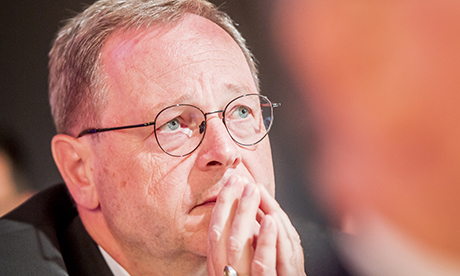Bishop Georg Bätzing, head of the German Bishops’ Conference, expressed surprise and confusion over recent comments by Pope Francis rejecting the idea of women’s ordination in the Catholic Church.
“I have never heard him speak like that before and have often spoken to him personally about these issues” said the Limburg bishop.
“Let me say: for me, what is doctrinal is not what the Pope says in interviews – but what he decides to do and puts it down in official documents.”
In an interview with CBS during Pentecost, Pope Francis was asked if a Catholic girl could ever become a deacon and thus part of the clergy. His response was a clear “No”.
He elaborated that women cannot be ordained as deacons but have always taken on diaconal roles without ordination.
“Women are great in their service as women – but not in service with ordination” the Pope said.
Bätzing highlighted that the issue of women’s ordination has been a significant topic in discussions during the World Synod.
Pope Francis had set up a working group to explore the matter and had never given the impression that the issue was settled.
However, Bätzing expressed concern that the Pope might avoid a direct resolution by referring such crucial matters to working groups and excluding them from the second phase of the World Synod.
“You cannot just talk abstractly about synodality; it must be addressed with concrete examples” Bätzing said.
Significant reform pressure
Despite this, Bätzing observed that the Synod had developed a dynamic momentum. He stated “The questions are there, and the drive is there, and it cannot be stopped.”
He acknowledged there is significant reform pressure within the Church, not only in Germany.
Presenting his book “Rome is Not an Opponent – Why the Church Needs Reforms”, Bätzing reiterated his stance on women’s ordination. He believes it could fit well within today’s cultural context.
He also envisioned the possibility of married priests.
While Bätzing himself embraces celibacy, he questioned whether maintaining such prerequisites might jeopardise essential elements of the Church.
“Is celibacy more important or is the sacramentality of the Church more important?” he asked.
Sources
